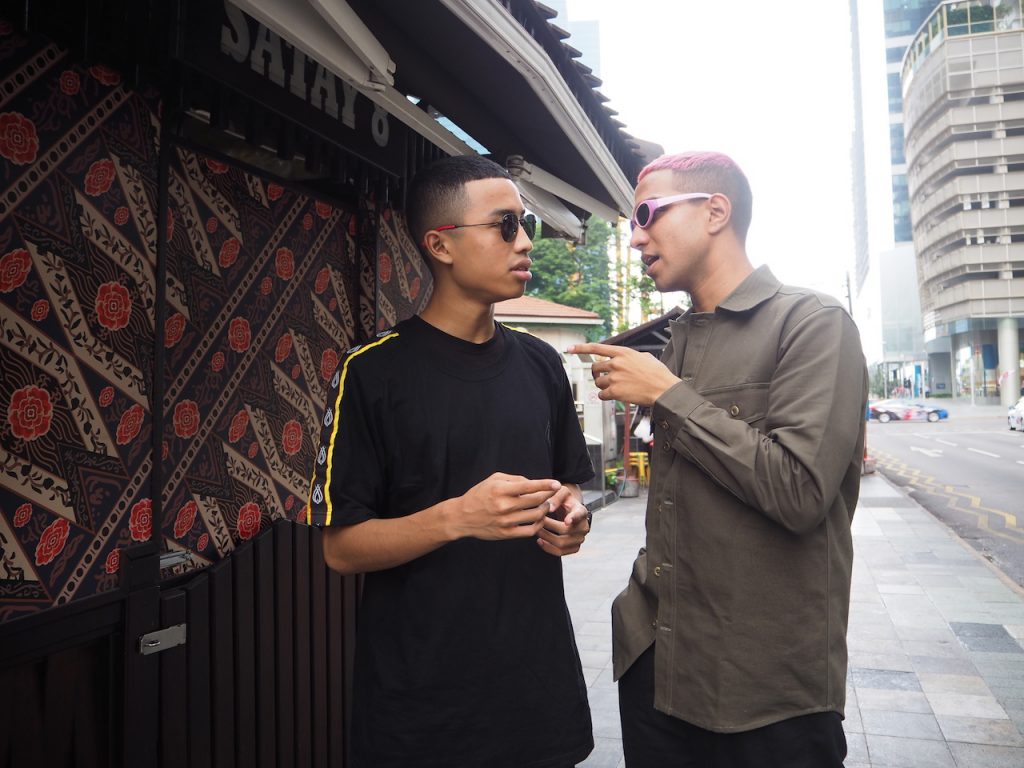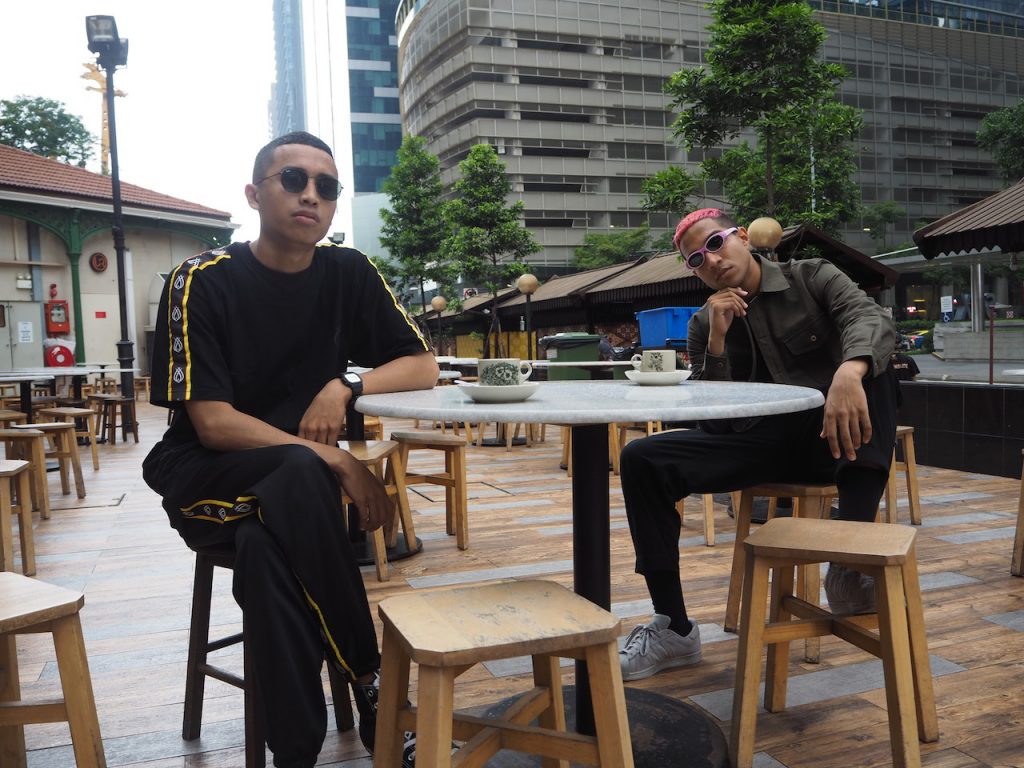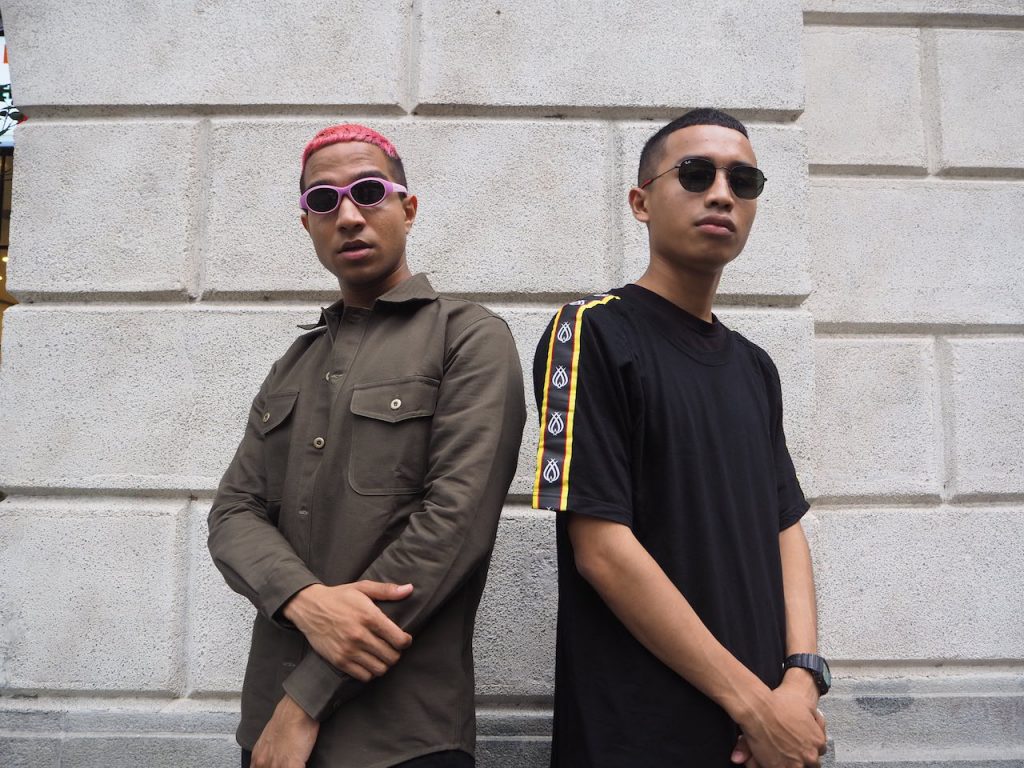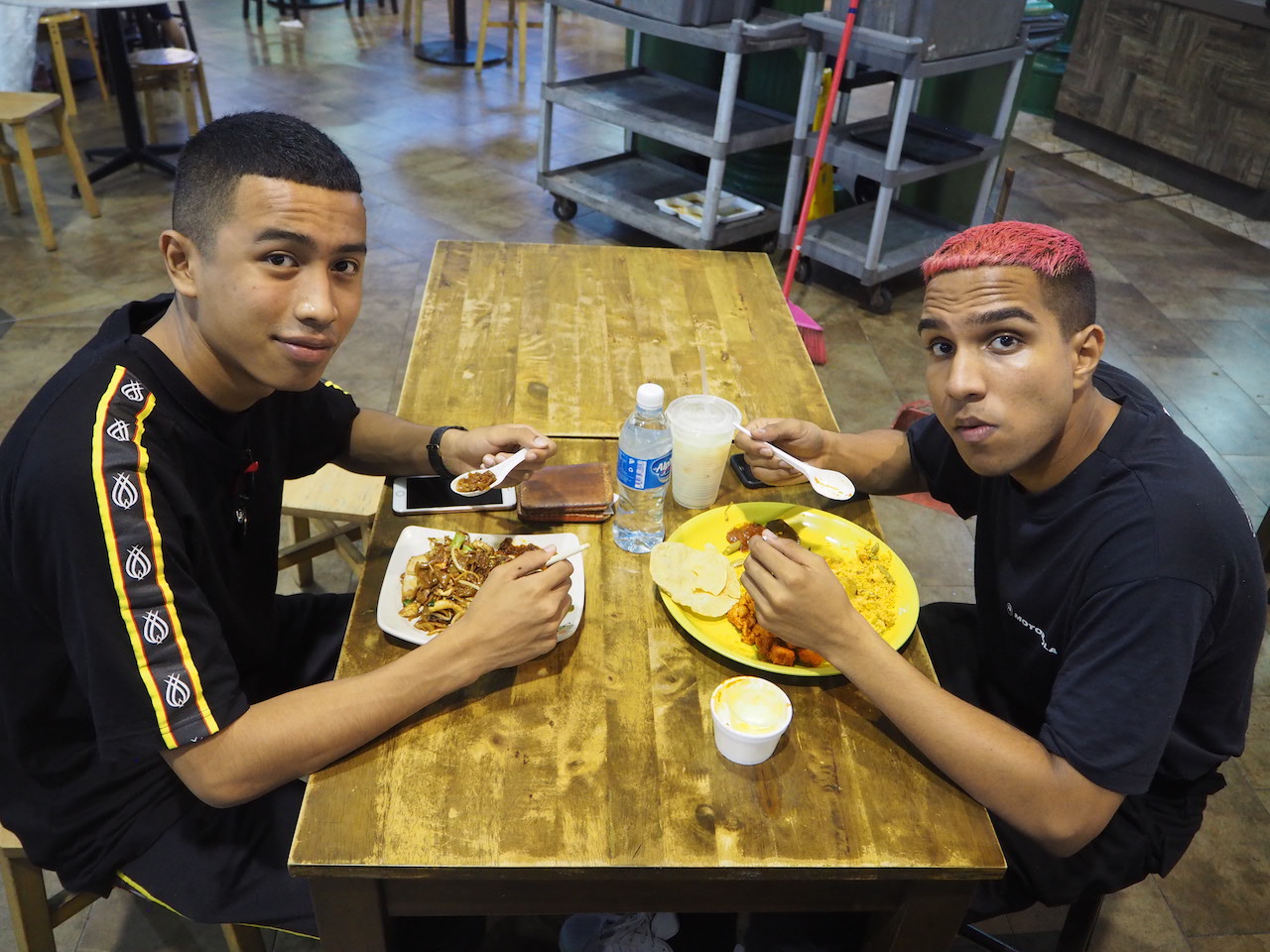In the entire course of human history, no generation has had the allure of fame dangled in front of them like we do. With the proliferation of social media apps like Instagram, it seems like just about anyone can become famous regardless of whether actual talent is possessed.
Right now, as you’re reading this, hordes of Singaporeans are eye-fucking the shit out of their smartphone cameras and doing anything they can to stand out. The thirst for popularity and the perks that come with celebrity is real.
My cynicism towards this new age of plastic and fame-hungry millennials vying for the limelight is why, when the opportunity to interview two young, up-and-coming local rappers presented itself, I was dismissive and sceptical.
What was the story? Young kids trying to differentiate themselves by rapping in their mother tongue?
They just want to be famous. Duh.
Lunchtime in Singapore’s central business district, the place is packed with hungry office folk, and finding a seat is near impossible. After what feels like 40 years of wading through the corporate army, I finally stumble on a small table on the outskirts of the food centre, and settle down.
Eventually, the three men with whom I had arranged to meet arrive. As the swarming mass of starched collars and pencil skirts return to their air-conditioned cubicles, I introduce myself to twenty-three-year-old Rajid Ahamed (a.k.a Yung Raja), twenty-two-year-old Muhammad Fariz Abdul Rashid (a.k.a Fariz Jabba), and their manager Ezekiel Keran (a.k.a FlightSch or Zeke as the boys affectionately call him).
Immediately, the boys apologise for being late due to an overrun of a prior engagement. Taken aback by their sincerity, my preconceived notion of them being young, cocky rappers starts to change.
Five minutes later, it changes again.
After Fariz and I get drinks (which I pay for) for the table, I begin the interview by turning to speak to Rajid who’s on my left. Out of the corner of my right eye, I see Fariz silently catch his manager’s attention. He then points to the drinks on the table before pointing to me, indicating that I had paid for them.
It’s a small gesture of gratitude, but to me, it speaks volumes.

“I remember when I was about 10, my mom would come and tell me stuff like I was the one to ‘save’ and change our family’s destiny. It was a lot of responsibility for a ten-year-old!” he says with a laugh.
“Through primary and secondary school, I was always trying to figure out who I was.”
Rajid then goes on to share that he started acting freelance during his school days and fell in love with the craft. He even pursued it full-time before his music career took off.
During the 9 years he spent acting, however, Rajid constantly struggled to find the one role or project that was big enough to allow him to shake off the expectations that came with his ethnicity.
“I had a lot of friends telling me that I should go just go to India if I wanted to make it big as an actor, but I refused. I told them that I was going to change things here as who I am. One day I’d get a lead role and perceptions were going to be altered.”
Unfortunately for him, that day never came.
Rajid gradually lost faith. But as luck would have it, it wasn’t before he auditioned for a role in the movie Ah Boys to Men 3: Frogmen in 2015, during which he met his best friend Fariz.
Turning to my right, I ask Fariz if he too faced any issues growing up as a minority in Singapore. He pauses to think for a moment before replying that while there were never any displays of racism towards him, there was plenty of microaggression.
“I went to a predominantly Chinese secondary school and once in a while there would be teasing based on the typical stereotypes about my race. It’s not something I was traumatised by but it’s definitely something that can be talked about more to help people understand the culture.”
And talk about it he did.

They did their homework and studied how the crowd reacted to each song. They experimented and honed their skills, critiquing each other regularly. Along the way, they met prominent industry producers like Lineath Rajendran, Shorya Sharma, and their current manager Flightsch (to name a few) who showed them the ropes and gave them studio time.
Starting from the bottom, Fariz and Rajid both eventually shot to virality after each covered Gucci Gang by Lil Pump in a mix of English and their respective mother tongues—Malay for Fariz and Tamil for Rajid. Unabashedly, they included cultural references in their remixes.
In late December the pair applied for, and were eventually handpicked, to be on 16 Baris, a YouTube cypher show created and hosted by Joe Flizzow, a legend in the Southeast Asian hip-hop scene and one of their idols.
At present, the episode in which they’re featured has slightly more than half a million views, further fuelling their fame.
Having done my research and watched their performances on YouTube prior to our meeting, it’s clear to me that the boys are hugely talented. What isn’t so clear though is their intentions when it comes to using their mother tongue in their art. A part of me is still doubtful.
Addressing the both of them, I ask the boys point blank if they would ever stop referencing and including bits of their culture in their lyrics if it meant being able to break into the US market.
Their answer is immediate.
“No. It’s not even a negotiable term.”
“Culture is not something you can take out. It is the essence of who you are. I mean if you remove the Tamil element of Yung Raja or the Malay element of Fariz Jabba, they are nothing bro.”
Rajid continues by explaining that in choosing to use Tamil in his music, he stays true to who he is. It’s a part of his identity and not something he would ever give up.
“Tamil is such a beautiful and complex language and I want more people to know how wonderful it sounds.”
Perhaps blessed with mind-reading capabilities, Fariz answers my unspoken question.
“It’s not that we’re trying to win the hearts of people. This is just my reality. I am a Malay, English-speaking boy and am part of this community. I’ve grown up that way and it’ll translate in my music.”
The boys also have big dreams about what they hope to achieve with their music.
“I want ignorance to be eradicated bro. We live in a society that has so much more than just the four main races that are commonly talked about. I would like for people to have a better understanding and appreciation of one another,” says Fariz.
Nodding furiously, Rajid continues to elaborate.
“I hope that kids look at Fariz and me and see our ethnicities. I want them to feel proud of where they came from.”
“Now that we have this voice, if we can do our part to add value and strengthen ties not just in our own community but across them, we will definitely do it. But first, we have to start with our own culture.”
Hearing the boys speak so passionately about what they believe in, a smile creeps onto my face. I had clearly thought too little of them.
When I ask if international acclaim is something they think about, their replies surprise me even more.
They tell me that right now, they want to serve their fans who’ve supported them from day one before thinking about the international scene.
“Only when everyone – from your auntie to the guy at the void deck somewhere – knows who we are here, then maybe we’ll go show the rest of the world what a Malay boy from Geylang and an Indian boy from Tekka are all about!” Fariz says, laughing.
To the boys, it’s definitely a goal that should be worked towards, but only after they’ve built the right foundations. Skipping a step is out of the question.
Compared to other rappers in the game. Their definition of success seems to be quite different.
Fariz explains that success to him is about personal growth in terms of making music.
“Music is such a wide-ranging entity. There are so many different styles and there’s always something to learn. When I’m 50 or 60 years old there will still be instruments I can’t play right? So it’s about bettering my craft every day.
“With personal growth, I’m also better able to help the younger Fariz Jabbas and Yung Rajas. It’s about a wave bro. If I can make a wave, that’s success.”

At this point, I can only say that I had misjudged them. They might be young, but both boys have a good head on their shoulders. They are far more mature than I could ever be.
Yung Raja and Fariz Jabba don’t know this, but on Tuesday evening they both gained a new fan.






